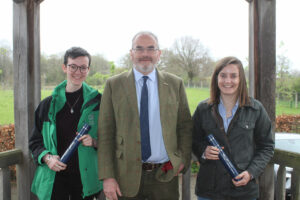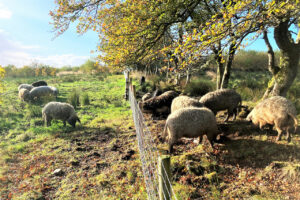Forestry Research Funding Does Not Reflect Economic Value
According to the Expert Committee on Forest Science, funding for forestry research does not reflect its current value to the economy. Following its 6th meeting at Forest Research’s Northern Research Station, on 26-27 October, the committee have released a statement urging increased spending on forestry research, to increase its capacity to respond to future challenges like climate change and pests and diseases.
Committee Chair, Prof. Julian Evans OBE FICFor, said:
“Since the committee was formed in 2013, we have been impressed by the range and diversity of forestry science undertaken by the Forestry Commission’s Forest Research agency, and the external providers which the Forestry Commission uses. Committee members have considered and discussed a wide range of research issues over this time, and have provided peer review for the current programme of research being delivered under the Science & Innovation Strategy for Forestry in Great Britain.
“We recognise the value which the Forestry Commission and wider-sector stakeholders place on the research. However, the committee has concerns that a reduction in resources over the next spending period will reduce the capacity and capability to address the important future challenges for forestry, such as climate change, pests and diseases, and the way in which silviculture can mitigate these.
“My committee feels that the modest budget allocated to forestry research is not in proportion to the huge value the forestry sector delivers for society – estimated in a study by European Economics to be as much as £270 billion capital value in perpetuity to the UK economy when everything trees provide is taken into account – and given that forests and woodlands occupy 13% of the land surface of Great Britain. We would urge any changes in funding to reflect this.”
New member for Expert Committee
Prof Evans also took the opportunity to welcome new committee member, Dr Clive Potter.
“In addition, the committee has recently gained a new member. I am delighted that Dr Clive Potter will be joining the committee. He brings a wealth of expertise in social science, which will be immensely valuable to our work.”
Dr. Clive Potter is an environmental social scientist at Imperial College, London. He will replace Prof. Eunice Simmons, the Pro Vice-Chancellor Academic at Nottingham Trent University, who stood down from the committee earlier this year.





